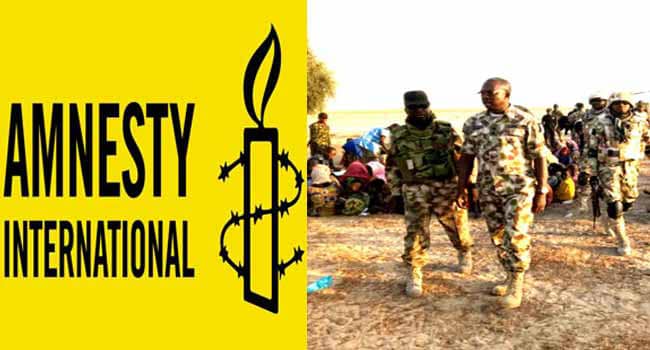Amnesty International has claimed it possesses concrete evidence including names and addresses of individuals allegedly killed extrajudicially by the Nigerian military in the South-East.
Speaking on Channels Television’s The Morning Brief on Friday, the Country Director of Amnesty International Nigeria, Isa Sanusi, said the organisation has been in constant touch with victims’ families and is ready to present its findings.
“We have our evidence and we are very glad to present those evidence. We are always in touch with families of victims and believe there is a need to do a soul-searching. Let us sit down, look at those cases, find out who did what and when, and make sure that the full weight of the law comes in to ensure justice for the victims,” Sanusi stated.
In its latest report titled A Decade of Impunity: Attacks and Unlawful Killings in Southeast Nigeria, Amnesty accused the Nigerian police, military, the regional security outfit Ebube Agu, and non-state actors of widespread human rights abuses. The report documents over 1,844 deaths between January 2021 and June 2023, as well as incidents of torture, enforced disappearances, arbitrary arrests, and other violations.
However, the Director of Defence Media Operations, Major General Markus Kangye, dismissed the allegations, insisting that the military does not carry out extrajudicial killings in the South-East or anywhere in the country. He maintained that security operations in the region have weakened the capacity of criminal groups.
Sanusi rejected the Defence Headquarters’ position, clarifying that the report also highlighted cases where military personnel were attacked or killed, as well as instances of barracks being targeted. He stressed that Amnesty’s findings were not aimed at singling out the armed forces.
The organisation said many of the alleged killings occurred during raids in communities suspected of harbouring members of the Indigenous People of Biafra (IPOB) or its armed wing, the Eastern Security Network (ESN). In several cases, victims were reportedly taken from their homes and never seen again.
Sanusi disclosed that the investigation involved interviews with 100 people 95 of them face-to-face in the South-East and that the group wrote to the military seeking clarification before the report’s release but received no reply.
“Our records include victims killed not only by the military, but also by the police and the Ebube Agu, which was set up by some governors to address insecurity but has instead become a tool of abuse,” he said.

